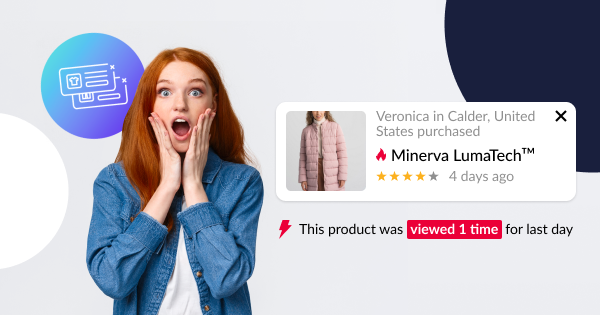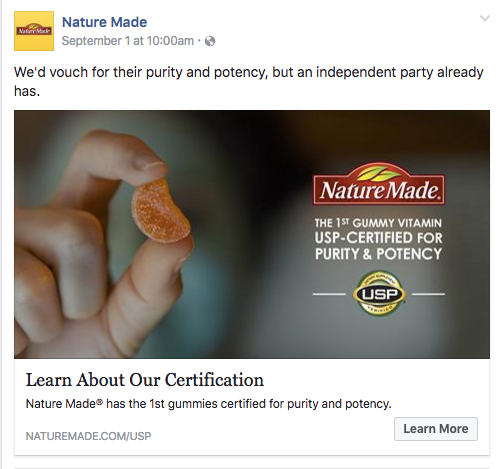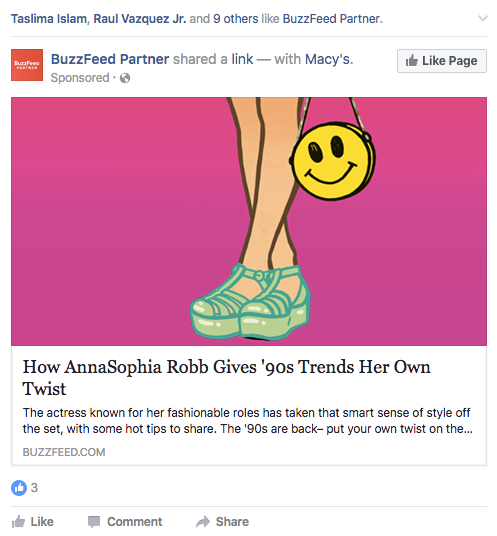

2022-03-26 | 1622 ![]() Print
Print ![]() PDF
PDF
Social proof has been a marketing strategy for quite some time now, in fact, Wikipedia defines Social proof as a psychological and social phenomenon wherein people copy the actions of others in an attempt to undertake behavior in a given situation. The term was coined by Robert Cialdini in his 1984 book Influence: Science and Practice, and the concept is also known as informational social influence. While in marketing, social proof meaning covers a copycat intuition – when people shop, they look for reviews, recommendations, and ways that others have used a product before making their decision.

image illustration courtesy Mageworx
The use of social proof in marketing strategy is a no-brainer as lots of companies and brands are already utilizing this marketing psychology to boost their conversion and increase sales by employing the different types of social proof.
Is a basic fact that most people when seeking to make a purchase do need some sort of (psychology) push in terms of decision making, it is a voluntary action that seems to be wired to most of our behavioral impulses. We seek to have some sort of verdict or validation about the product or service we want to purchase, these are instances when we go shopping or when we want to make a purchase of a new product we simply call a friend or ask the cashier about the product quality before making a purchase this can be akin to — the halo effect (named by psychologist Edward Thorndike).
For instances;
There are different types of social proof and each with their type of social proof meaning, in fact, there are a dozen types of social proof with each overlapping in their meaning with each other.
Expert social proof is when an industry expert or an authoritative individual in your niche recommends your products or services. Usually, this takes the form of a video commercial or any other content creation channel and does not overlook social media platforms.
Celebrity social proof typically takes the form of a celebrity endorsing a product they use and promoting it, which could be online (social media handles) or via public vendors. Examples: an Instagram post or tweet about your product by a celebrity or influencer.
The use of user testimonials is not an overstretch as it has always been a prof of confidence and decision making for new users to see testimonials of other users of the product or services, they are about to purchase. This comes in different forms like online reviews, positive feedback, and live case studies that companies execute as research for their product usage by their clients.
While user testimonials can add value to a product, business credentials can add trust to the product. Businesses can promote credentials like how many customers it has, what well-known businesses are their customers or the awards and certifications it has received. Sole proprietorships might even use their education or degree as a credential their customers should care about.
This is the factor effect of recognition via press releases or interviews from a giant media outlet about your product or services, these are classified as earned media, the same lot can be seen on websites that use "AS SEEN ON" CBS, TechCable, etc this earned media is a great way to build authoritativeness towards your audience or web visitors, and a great way to harness social proof that your business is an authority in the industry.
The use of social share buttons on a website has a great impact on how web visitors perceive your website being popular on social media sites and how well it gets syndicated also interprets into social media traffic. On a norm, social media is a tool for word of mouth, so imagine having your website being referenced on popular social media sites, like Facebook, Instagram, Twitter, etc on a viral note or hashtag contest.
“Wisdom of the Crowds” social proof appeals to our sense of Fear of Missing Out (FOMO): When lots of people are using or buying a product, others want to follow suit.
“Wisdom of your Friends” social proof refers to the phenomenon I described previously: The recommendations from people we know and trust carry far more weight than other types of promotions or advertising.
Now that we have described the different types of social proof and their social proof meaning, I think the next question that comes to mind is which one of them works best for a marketing strategy? To be honest, it does vary from business to business, depending on the type of deliverables you offer in your product and services.
Below is some statistical research was done by BrightLocal on the types of social proof that perform best, and what you need to know about persuading prospective clients into converted paying customers:
- 88% of consumers trust user reviews as much as personal recommendations.
- Placing the logos of business customers on a company website can increase conversions by as much as 400%, according to Voices.com.
- Influencer marketing has been considered the fastest-growing consumer-acquisition channel.
- The average consumer reads 10 online reviews before making a purchase decision.
- 57% of consumers will only buy or use a business service if it has at least a 4-star rating.
- For 50% of all consumers, their very next step after reading a positive review about a company is to visit their website.
To use Social proof in your marketing strategy is to improve your conversion and sales funnel returns, this is one major importance of social proof, follow the steps below and see a better conversion ratio with your social proof marketing.
1.) You need to get testimonials from users that are already using your product or services, if you have a business page on Facebook or Google Business this can be a great avenue to showcase your positive reviews on your website. and if you don't have any, try to get expert reviews on your website to help provide a sense of value for your product or service.
2.) Try to work around getting social shares button on your content pages eg blogs or article pages, could even be on your product pages if you run an e-commerce website. They also add a vote of confidence when they see a product page with lots of social shares and engagements.
3.) Get into the influencer marketing trend, seek micro-influencers that can help you share your product content on their handles, you need to understand Social Media Influencers Marketing Personalities in order to know which influencer audiences best suit your brand.
4.) Provide trial period or freemium versions of your product, this always works in converting as it is at no cost to your prospects, and in return, you achieve a goal of registered data.
5.) Release a press release on new product creation, business milestones achieved, or case studies executed by your company to appraise the use of your product or service in the findings.
6.) Associates your business with big media outlets for public awareness and grant interviews, try to feature on other related events around your niche to better network and grow presence in your industry, you can take a booth stand, attend trade fairs, etc.
7.) User testing is a part of social proof and as related with freemium and trial period, you should consider rewarding or motivating users to provide content on your product.
8.) Using FOMO pop-under and pop-ups for sales conversion is another means of increasing your sales, just as explained earlier that when users see that there is a live order of a product they tend to make decisions quickly for the same product before it is out of stock. You would have noticed such widgets on digital marketers' sales pitch pages.
9.) Brand Ambassordoship can help when you use the right public figure or influencer or celebrity to showcase and broadcast your product, this is what the big brands do when they sign deals with big shot NBA superstars or car racers, footballers, etc as a small-medium company you can wor around social influencers or social celebrities.
10.) Showcase any industry awards, certificates, quality assurance test your product or services must have gotten, sometimes attaching a business registration number also do good to build trust as most businesses online without a certificate can be seen to be dubious (business certificate is the last thing your web visitors will peruse, but adding it there is a self-confidence you give your visitors that you are a legit business).
Now that we've seen the importance of social proof in marketing strategy, let's dive into some real-world social proof examples of the types of social proof by hubspot.com...

Social proof marketing examples:
Social proof marketing examples: Nature Made uses the expert certification of the USP (U.S. Pharmacopeial Convention) to speak for their vitamins instead of describing their quality themselves. The image of the seal of approval also echoes the text in their Facebook post.

Social proof marketing examples:
The use of celebrities for phone endorsements can be seen as phone manufacturers utilize the social proof marketing strategy in growing awareness and sales for their respective products not shying away if these celebrities do use these phones personally or not, using Wizkid, Davido, and Olamide as a good sample only to showcase the importance of social proof in their marketing strategy.

Social proof marketing examples:
A search on Google will showcase our Google Business Page which consists of reviews from previous customers, having such positive reviews online can be seen as a type of social proof that further persuade your prospective clients to become paying customer.

Social proof marketing examples:
On our blog home page we display our most liked, and underneath we have the most viewed all based on numbers and highlight their readership based on the crowd this individual post attract, and not to forget the current trending post on the blog, they are all strategically placed to gain more visitors to bloggers post and earn readership.

Social proof marketing examples:
Facebook suggests Pages and articles for users based on how their friends are interacting with the social media platform. This form of social proof is supported by our inherent trust in people we already know:
Remember, we take our friends' recommendations more seriously than any other type of advertising.
Conclusion.
These are great examples of types of social proof and we do try as much as possible to implement them in our marketing strategy knowing fully well the traction it can give; for example, having NealSchaffer who is a social media marketing expert and influencer tweet about one of our blog post was a delight, not shying away from the fact that he is one of the digital marketing experts we have as our expert testimonials on our website homepage. We try to keep a mutual relationship with these experts and it has helped in giving our product credibility and trust from prospective users.
Pinterest Marketing strategy For Business https://t.co/kozLrSBaQO via @SEOWebAnalysts #pinterest pic.twitter.com/cH0GrM19js
— 🇺🇦 Neal Schaffer | ニール・シェーファー|夏廉 🇺🇦 (@NealSchaffer) June 13, 2016

I am a seo web analyst and have a love for anything online marketing. Have been able to perform researches using the built up internet marketing tool; seo web analyst as a case study and will be using the web marketing tool (platform).
How To Optimize Cache Performance via HTACCESS Apache Server
How To Fix GA4 Showing Wrong Domain Traffic
How To Reactivate Google Adsense Account
How Do You Write Pitch Deck That Wins Investors
Effective Lead Magnet Funnel Examples For Businesses
How To Promote FMCG Products Using Digital Marketing
The Main Objectives Of SEO in Digital Marketing
How Artificial Intelligence Is Transforming Digital Marketing
Google CEO Sundar Pichai: Search will profoundly change in 2025
3 Most Important Business Growth Strategies